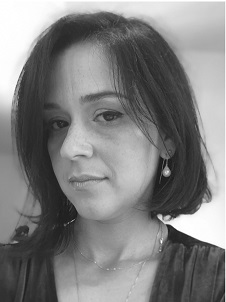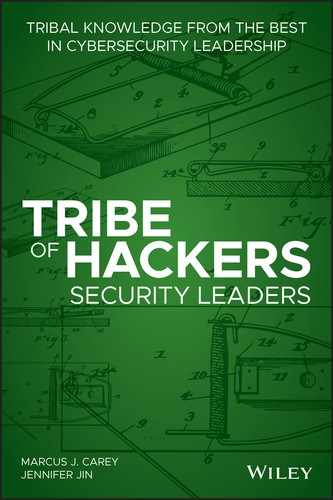44
Marina Segal
“For me, on-the-job training is the best learning experience you can ever get, and I am lucky to work with leaders and in an environment that allows me to do so.”
Twitter: @marfa_27 • Websites: www.linkedin.com/in/segalmarina and www.security-diva.com Marina Segal is the head of product management for cloud secops and compliance at Check Point Software Technologies. Marina is focused on delivering cloud security and compliance products and has more than 13 years of global experience in security, compliance, and governance with Deloitte and other high-tech companies. She is the founder of WoSec and Bay Area Branch (formerly the Security Diva group), which promotes women in security and technology. Marina has a bachelor of science degree in information systems and management and a master of business administration degree in technology, innovation, and entrepreneurship from Tel Aviv University. Do you believe there is a massive shortage of career cybersecurity professionals? Since we are part of a major digital transformation, there is an absolute need to ensure that all the newest technologies are protected. Since technological changes are happening as we speak, naturally we are in constant need of professionals who can secure all the innovation in healthcare, IoT, consumer business, and any other sector that affects our lives. What's the most important decision you've made or action you've taken related to a business risk? As part of my role as a product manager, I was involved in the M&A process. Being able to affect company decisions to invest or not to invest in another business involves a lot of steps, and I was only part of one aspect in this deal. My recommendation was to buy, and I chose it based on thorough data analysis, several discussions with relevant stakeholders, and of course a gut feeling that this was the right thing to do. How do you make hard decisions? Do you find yourself more often making people, process, or technology decisions? As part of my role, I often find myself making process and technology decisions. I usually try not to decide on a clear timeline for the decision-making process; I gather as much data as possible, consult with a few people that I believe have similar previous experience, think about the possible outcomes, and trust my intuition to make the right decision. I also strongly believe that in many cases, making any decision is much better than not making one and having to continue with ambiguity. I also strongly believe that in many cases, making any decision is much better than not making one and having to continue with ambiguity. What's something that you struggle with as a leader and how do you overcome that? Product management is one of the most challenging roles in the tech industry, and being 2.5 years into this role (after 12+ years spent mostly in various risk management and security capacities) makes me feel that I still have a long, long learning path ahead of me. For me, on-the-job training is the best learning experience you can ever get, and I am lucky to work with leaders and in an environment that allows me to do so. How do you lead your team to execute and get results? I let my team decide where they want to spend most of their time, since I strongly believe that if you enjoy what you are doing, that is where the motivation comes from. I also tend to give challenging tasks and let my team “figure it out” before I get involved so they can get out of their comfort zone and shine. Do you have a workforce philosophy or unique approach to talent acquisition? During the interviewing process, I do some technical and personality tests, but the most significant factor definitely includes soft skills that align with team/company culture. What are your communication tips for interacting with executive leadership? Transparency and no sugar-coating. How do you cultivate productive relationships with your boss, peers, direct reports, and other team members? Say whatever you mean and make sure to ask silly questions. Have you encountered challenges collaborating with revenue-generating teams like sales and product development? My approach is to understand the goals, the challenges, and the main drivers for these teams. Try to find out how you can make them successful and be sure you communicate any roadblocks up front. Have you encountered challenges collaborating with technology teams like information technology and software development? Yes, collaboration with R&D and IT can be challenging. My approach is to talk to a person first, get to know each other, and understand what drives each team member. Once you know all these, finding compromises will be much, much simpler. Do you have any favorite books to recommend for people who want to lead cybersecurity teams? How to Measure Anything in Cybersecurity Risk by Douglas W. Hubbard and Richard Seiersen.
